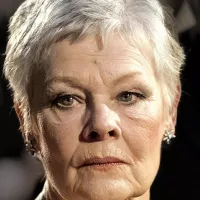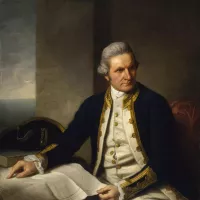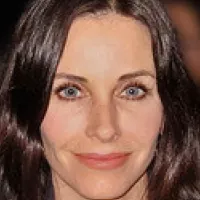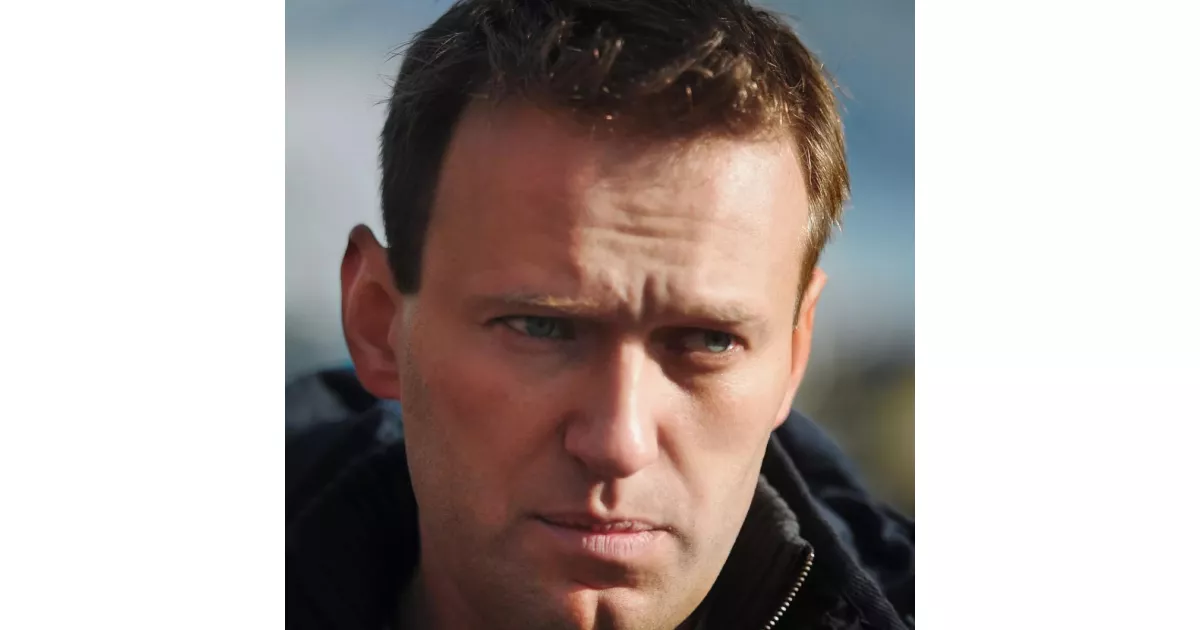A closer look at the most debated and controversial moments involving Alexei Navalny.
Alexei Navalny was a prominent Russian opposition leader and anti-corruption activist. He founded the Anti-Corruption Foundation (FBK) in 2011, dedicated to investigating and exposing corruption within the Russian government. Navalny gained international recognition for his activism, including being recognized as a prisoner of conscience by Amnesty International and receiving the Sakharov Prize. However, he also faced multiple criminal charges and imprisonment, widely considered politically motivated. He was a vocal critic of Vladimir Putin and a significant figure in Russian politics despite facing constant pressure and legal challenges.
2006: Appealed for Russian March
In late 2006, Alexei Navalny appealed to the Moscow City Hall for permission to conduct the nationalist 2006 Russian march.
2006: Participation in Russian March
Starting in 2006, Navalny participated in the "Russian march", a parade uniting Russian nationalist groups.
December 2007: Expelled from Yabloko
In December 2007, Alexei Navalny was expelled from Yabloko for his nationalist views and for participating in the Russian March.
2007: Alleged fraud by Allekt against the Union of Right Forces
In 2007, Allekt, an advertising company headed by Navalny, was accused of defrauding the Union of Right Forces (SPS) political party. The allegation stated that the company took 100 million rubles ($3.2 million) payment for advertising without fulfilling the contract.
2007: Co-founding of NAROD and Anti-Immigration Videos
In 2007, Navalny co-founded the National Russian Liberation Movement (NAROD) and released several anti-immigration videos. In one of the videos, he compared people from the North Caucasus to cockroaches.
2008: Navalny accused of embezzling funds from postal business
In 2008, Alexei Navalny and his brother Oleg were accused of embezzling 55 million rubles ($1.76 million) while working in a postal business. This accusation was part of a series of inquiries against Navalny during that period.
2008: Oleg Navalny made an offer to Yves Rocher Vostok
In 2008, Oleg Navalny made an offer to Yves Rocher Vostok to accredit Glavpodpiska with delivering duties.
2009: Embezzlement in 2009
In 2009, Alexei Navalny allegedly conspired to steal timber from Kirovles, a state-owned company in Kirov Oblast.
November 2010: Navalny publishes documents about Transneft auditing
In November 2010, Alexei Navalny published confidential documents about Transneft's auditing, alleging that about US$4 billion were stolen during the construction of the Eastern Siberia–Pacific Ocean oil pipeline.
2010: Estate first reported on in 2010
In 2010, the estate was first reported on after the businessman Sergei Kolesnikov, who was involved in the project, gave details about it.
February 2011: Navalny Calls United Russia 'Party of Crooks and Thieves'
In February 2011, Navalny called United Russia, the main Russian party, a "party of crooks and thieves" during an interview with the radio station finam.fm.
February 2011: Hungarian officials detained in February 2011
In February 2011, three Hungarian officials responsible for a real estate deal were detained.
May 2011: Public Opinion on the Kirovles Case
In May 2011, according to the Levada Center, 54% of people thought the Kirovles case was due to Navalny's anti-corruption activity.
May 2011: Criminal Investigation into Navalny
In May 2011, the Russian government initiated a criminal investigation into Navalny, which was widely described as "revenge".
2011: United Russia, a party of crooks and thieves
In 2011, Alexei Navalny described Russia's ruling party—United Russia—as a "party of crooks and thieves", which became a popular byname.
2011: Navalny Identifies as a Nationalist Democrat
In 2011, Navalny stated that he considered himself a "nationalist democrat". He also co-organized the 2011 "Russian march", a parade uniting Russian nationalist groups.
2011: Leaked photos from inside the estate palace in 2011
In 2011, photographs from inside the palace that were leaked onto the Internet.
2011: Accusation of embezzlement in postal business extends to 2011
The alleged embezzlement case involving Alexei Navalny and his brother Oleg, related to their work in a postal business, spanned from 2008 to 2011. The accusation stated the embezzlement totalled 55 million rubles ($1.76 million).
February 2012: Navalny on federal money spent by the Chechen Interior Ministry
In February 2012, Alexei Navalny concluded that Russian federal money going to Ramzan Kadyrov's Chechen Interior Ministry was being spent "in a totally shadowy and fraudulent way."
July 2012: Navalny charged with embezzlement
On July 30, 2012, Alexei Navalny was charged with embezzlement by the Investigative Committee, accused of conspiring to steal timber from Kirovles in 2009.
December 2012: Investigative Committee Accuses Navalny of Fraud
In December 2012, the Investigative Committee of Russia alleged that Allekt, an advertising company headed by Alexei Navalny, defrauded the Union of Right Forces (SPS) political party in 2007. They claimed Navalny took a 100 million rubles payment for advertising and failed to honor the contract. Also in December, Navalny and his brother Oleg were accused of embezzling 55 million rubles in 2008-2011 while working in a postal business.
December 2012: Yves Rocher Vostok was interrogated
In November and December 2012, the Investigating Committee interrogated and questioned Yves Rocher Vostok.
2012: Navalny Faces Embezzlement Charges
On 18 July 2012, Navalny was sentenced to a five-year prison term for embezzlement and fraud. He pulled out of the Moscow mayoral race but later vowed to stay after being freed on bail pending an appeal.
April 2013: Loeb & Loeb LLP issued "An Analysis of the Russian Federation's prosecutions of Alexei Navalny"
In April 2013, Loeb & Loeb LLP issued "An Analysis of the Russian Federation's prosecutions of Alexei Navalny", a paper detailing Investigative Committee accusations.
April 2013: Kirovles trial commenced in April 2013
The Kirovles trial commenced in the city of Kirov on April 17, 2013.
May 2013: Public Opinion on Kirovles case (May 2013)
In May 2013, 28% of people thought the Kirovles case had been caused by an actual violation of law, while 47% agreed the rationale beyond the case was his anti-corruption activity.
July 2013: Fairness of Another Criminal Case
In July 2013, according to Levada Center, 13% of people found the result of another criminal case against him was unfair and Navalny was not guilty.
September 2013: Public Opinion on Kirovles case (Sept 2013)
In September 2013, 35% of people thought the Kirovles case had been caused by an actual violation of law, while 45% agreed the rationale beyond the case was his anti-corruption activity.
October 2013: Suspended prison sentence in October 2013
In October 16, 2013, Alexei Navalny's prison sentence was suspended by a court in Kirov.
2013: Russian Scientists Paper on Epibatidine
In 2013, Russian scientists published a paper describing synthesizing epibatidine. These scientists are employed by GosNIIOKhT, a Russian state research institute that developed the Novichok nerve agent.
2013: Comments on Ethnic Riots and Immigration
In 2013, following ethnic riots in Moscow, Navalny sympathized with the anti-immigration movement and commented on ethnic tensions and crime due to failing immigration policies. He later stated the need to educate nationalists.
2013: Navalny Re-sentenced in Kirovles Case
On 8 February 2017, the Leninsky district court of Kirov repeated its 2013 sentence in the Kirovles case, potentially prohibiting Navalny's official registration as a candidate. Navalny announced his presidential campaign would proceed regardless.
2013: Leninsky district court of Kirov repeated its sentence of 2013
On February 8, 2017, the Leninsky district court of Kirov repeated its sentence of 2013 and charged Alexei Navalny with a five-year suspended sentence.
2013: Russia's Supreme Court overturned the 2013 sentence
On November 16, 2016, Russia's Supreme Court overturned the 2013 sentence, sending the verdict back to the Leninsky District Court in Kirov for review.
February 2014: Navalny was placed under house arrest
On February 28, 2014, Alexei Navalny was placed under house arrest and prohibited from communicating with anyone other than his family, lawyers, and investigators.
September 2014: Public Opinion on Kirovles case (Sept 2014)
In September 2014, 37% of people thought the Kirovles case had been caused by an actual violation of law, while 38% agreed the rationale beyond the case was his anti-corruption activity.
December 2014: Navalny was found guilty of fraud and money laundering
On December 30, 2014, Alexei Navalny was found guilty of fraud against Multiprofile Processing Company (MPC) and Yves Rocher Vostok and money laundering and was given 3 1/2 years of suspended sentence.
2014: Suspended sentence in Yves Rocher case
In 2014, Navalny received a suspended sentence in the Yves Rocher case, which he called politically motivated. This sentence was later cited by the FSIN as justification for his detention upon his return to Russia in January 2021.
2014: Timur Kuashev's death linked to unit tracking Navalny
In 2014, activist Timur Kuashev died and in January 2021, Bellingcat, The Insider, and Der Spiegel linked the unit that tracked Navalny to Kuashev's death.
January 2015: Public Opinion on Criminal Case
In January 2015, 5% of people found the result of another criminal case against him was unfair and Navalny was not guilty.
July 2015: Informal Prohibition on Mentioning Navalny's Name
In July 2015, Bloomberg reported that there was an informal prohibition from the Kremlin for senior Russian officials to mention Navalny's name. Putin himself avoided saying Navalny's name in public.
October 2015: Navalny Pays Compensation in Yves Rocher Case
In October 2015, Alexei Navalny's lawyer announced that he willingly paid 2.9 million rubles toward the 4.4 million rubles compensation required in the Yves Rocher case. He requested an installment plan for the remainder, which was granted, although the term was shortened. This action was taken despite Navalny's claim that the case was a frame-up, to potentially influence his brother's parole.
2015: Ruslan Magomedragimov's death linked to unit tracking Navalny
In 2015, activist Ruslan Magomedragimov died and in January 2021, Bellingcat, The Insider, and Der Spiegel linked the unit that tracked Navalny to Magomedragimov's death.
November 2016: Russia's Supreme Court overturned the 2013 sentence
On November 16, 2016, Russia's Supreme Court overturned the 2013 sentence, sending the verdict back to the Leninsky District Court in Kirov for review.
2016: Navalny speaks against Russian intervention in Syrian civil war
In 2016, Navalny spoke against Russia's intervention in the Syrian civil war, stating that Russia should focus on internal problems. He said Russia should not try to save Assad and that siding with Shia Islamist Iran and Hezbollah stoked anger among Russia's Sunni Muslim community.
February 2017: Navalny Re-sentenced in Kirovles Case
On 8 February 2017, the Leninsky district court of Kirov repeated its 2013 sentence in the Kirovles case, potentially prohibiting Navalny's official registration as a candidate. Navalny announced his presidential campaign would proceed regardless.
February 2017: Leninsky district court of Kirov repeated its sentence of 2013
On February 8, 2017, the Leninsky district court of Kirov repeated its sentence of 2013 and charged Alexei Navalny with a five-year suspended sentence.
March 2017: Navalny publishes investigation and organizes anti-corruption rallies
In March 2017, Alexei Navalny published the investigation He Is Not Dimon to You, accusing Prime Minister Dmitry Medvedev of corruption, and organized anti-corruption rallies across Russia. On March 27, he was fined 20,000 rubles and jailed for 15 days.
April 2017: Navalny Attacked with Green Dye
On 27 April 2017, Navalny was attacked outside his office in the Anti-Corruption Foundation and sprayed with green dye, resulting in a chemical burn to his right eye and reportedly causing significant vision loss. Navalny accused the Kremlin of orchestrating the attack.
September 2017: Human Rights Watch Accuses Russian Police of Interference
In September 2017, Human Rights Watch accused Russian police of systematic interference with Navalny's presidential campaign, urging authorities to investigate attacks against campaigners. The Committee of Ministers of the Council of Europe urged Russia to erase the prohibition on Navalny's standing for election.
December 2017: Navalny Barred from Presidential Run
In December 2017, Russia's Central Electoral Commission barred Navalny from running for president in 2018 due to his corruption conviction. The European Union expressed concerns, and Navalny called for a boycott of the election.
January 2018: Navalny leads protests and is arrested
On January 28, 2018, Alexei Navalny led protests urging a boycott of the presidential election. He was arrested on the same day and released pending trial. Throughout the country, 257 people were arrested. Navalny was likely to be charged with calling for unauthorized demonstrations.
January 2018: Navalny imprisoned for staging protests in January 2018
Shortly after his allegations against Viktor Zolotov, Alexei Navalny was imprisoned for staging protests in January 2018.
February 2018: Navalny accused of assaulting an officer
On February 5, 2018, the government accused Alexei Navalny of assaulting an officer during the protests that took place in January.
August 2018: Navalny alleges Viktor Zolotov stole from procurement contracts
In August 2018, Alexei Navalny alleged that Viktor Zolotov stole at least US$29 million from procurement contracts for the National Guard of Russia.
September 2018: Navalny arrested again after release
On September 25, 2018, immediately after his release from jail, Alexei Navalny was arrested and convicted for organizing illegal demonstrations, and sentenced to another 20 days in jail.
2018: Navalny Barred from Presidential Run
In December 2017, Russia's Central Electoral Commission barred Navalny from running for president in 2018 due to his corruption conviction. The European Union expressed concerns, and Navalny called for a boycott of the election.
April 2019: Moskovsky Shkolnik Files Lawsuit Against Navalny
In April 2019, after Alexei Navalny alleged that Russian billionaire Yevgeny Prigozhin was linked to Moskovsky Shkolnik, a company accused of supplying poor quality food to schools and causing a dysentery outbreak, Moskovsky Shkolnik filed a lawsuit against Navalny.
July 2019: Navalny arrested and hospitalized
In July 2019, during the Moscow City Duma election, Alexei Navalny was arrested, first for ten days, and then for 30 days. On July 28, he was hospitalized with severe damage to his eyes and skin and diagnosed with an "allergy". On July 29, he was discharged and taken back to prison. In response, he initiated the Smart Voting project.
August 2019: Assassination of Zelimkhan Khangoshvili
In August 2019, Vadim Krasikov assassinated Zelimkhan Khangoshvili, a Georgian national and ethnic Chechen, in Berlin's Tiergarten Park. Khangoshvili had opposed Vladimir Putin's regime with violence.
October 2019: Court Orders Navalny to Pay Moskovsky Shkolnik
In October 2019, the Moscow Arbitration Court ordered Alexei Navalny to pay 29.2 million rubles to Moskovsky Shkolnik. This was after Navalny had alleged the company supplied poor quality food to schools, leading to a dysentery outbreak. Navalny argued that cases of dysentery were proven using documents.
2019: Nikita Isayev's death linked to unit tracking Navalny
In 2019, politician Nikita Isayev died and in January 2021, Bellingcat, The Insider, and Der Spiegel linked the unit that tracked Navalny to Isayev's death.
April 2020: Yandex Manipulates Search Results for Navalny
In April 2020, the Yandex search engine began artificially placing negative commentary about Alexei Navalny at the top of search results for his name. Yandex claimed it was part of an "experiment" and later returned to presenting organic search results.
June 2020: Slander Case Launched Against Navalny
In June 2020, a slander case was launched against Alexei Navalny for defaming a World War II veteran who participated in a promotional video supporting constitutional amendments. Navalny had called participants in the video "corrupt lackeys" and "traitors".
August 2020: Prigozhin intends to enforce court decision against Navalny
On August 25, 2020, Yevgeny Prigozhin stated his intention to enforce a court decision requiring Alexei Navalny, Lyubov Sobol, and the Anti-Corruption Foundation to pay 88 million rubles in damages to the Moskovsky Shkolnik company. This was related to a video investigation conducted by Navalny and his associates.
December 2020: Laws passed giving constitution precedence over international rulings
In December 2020, Russia passed and signed laws giving the constitution precedence over rulings made by international bodies and international treaties. This paved the way for them to ignore a ruling from the ECHR in February 2021.
December 2020: Navalny Releases Video of Call with Alleged Chemical Weapons Expert
On December 21, 2020, Alexei Navalny released a video where he impersonated a Russian security official and spoke with a man identified as Konstantin Kudryavtsev, an alleged chemical weapons expert. During the call, Kudryavtsev revealed that the poison had been placed on Navalny's clothing, particularly his underwear, and that Navalny would have died without the emergency landing and quick response from medical personnel.
January 2021: Investigation links unit tracking Navalny to other deaths
In January 2021, Bellingcat, The Insider, and Der Spiegel linked the unit that tracked Alexei Navalny to the deaths of activists Timur Kuashev in 2014 and Ruslan Magomedragimov in 2015, and politician Nikita Isayev in 2019.
January 2021: Navalny Returns to Russia and is Detained
On January 17, 2021, Alexei Navalny returned to Russia from Germany on Pobeda airlines flight DP936. The flight was diverted to Sheremetyevo International Airport, and he was detained at passport control. The Federal Penitentiary Service (FSIN) confirmed his detention for violating probation terms and stated he would remain in custody until a court hearing.
January 2021: Court Orders Detention of Navalny and Investigation Against Putin is Published
On January 18, 2021, a court ordered the detention of Alexei Navalny until February 15 for violating his parole. A makeshift court was set up in the police station where Navalny was held. On January 19, while in jail, Navalny and the FBK published an investigation accusing President Vladimir Putin of corruption. This arrest and the investigation resulted in mass protests across Russia starting on January 23, 2021.
January 2021: Investigation accusing Putin of building massive estate published
On January 19, 2021, an investigation by Alexei Navalny and the FBK was published, accusing President Vladimir Putin of using fraudulently obtained funds to build a massive estate for himself near Gelendzhik, costing over 100 billion rubles ($1.35 billion).
January 2021: Navalny's lawyers apply for 'interim measure' for his release
On January 20, 2021, Alexei Navalny's lawyers applied to the European Court of Human Rights for an 'interim measure' for his release following his detention. The application was made in light of the risk to Navalny's life.
February 2021: Amnesty International Briefly Revokes Navalny's 'Prisoner of Conscience' Designation
In February 2021, Amnesty International briefly revoked Alexei Navalny's designation as a prisoner of conscience after receiving complaints about xenophobic comments he had made in the past. However, Amnesty reversed this decision in May of the same year, reaffirming the designation and emphasizing the need for Navalny's rights to be recognized.
February 2021: ECHR Orders Navalny's Release, Russia Refuses
On February 16, 2021, the European Court of Human Rights (ECHR) ruled that the Russian government should immediately release Alexei Navalny, citing risks to his life. However, Russian officials refused to comply, calling it a flagrant intervention. Later in February, a Moscow court rejected Navalny's appeal but reduced his sentence by six weeks. Another court convicted Navalny on slander charges and fined him 850,000 rubles ($11,541).
February 2021: Navalny's Suspended Sentence Replaced with Prison Sentence
On February 2, 2021, a Moscow court replaced Alexei Navalny's three-and-a-half-year suspended sentence with a prison sentence, minus time spent under house arrest, resulting in over 2+1⁄2 years in a corrective labor colony. The verdict was widely condemned internationally. After the verdict, protests were held in various Russian cities and met with police crackdown.
February 2021: Navalny Arrives at Pokrov Correctional Colony
On February 28, 2021, it was reported that Alexei Navalny had recently arrived at the Pokrov correctional colony in Vladimir Oblast. This is the same prison where Dmitry Demushkin and Konstantin Kotov were also jailed.
March 2021: Navalny Accuses Authorities of Torture and Sleep Deprivation
In March 2021, Alexei Navalny formally accused authorities of torture by depriving him of sleep, arguing that he was being woken up eight times a night. He also reported health problems, including a loss of sensation in his spine and legs, and was denied access to a civilian physician. On March 31, he announced a hunger strike to demand proper medical treatment.
March 2021: EU and US Impose Sanctions on Russian Officials
In early March 2021, the European Union and the United States imposed sanctions on senior Russian officials in response to the poisoning and imprisonment of Alexei Navalny.
April 2021: Moscow prosecutor requests to designate organizations linked to Navalny as extremist
On 16 April 2021, the Moscow prosecutor office requested the Moscow City Court to designate organizations linked to Alexei Navalny, including the Anti-Corruption Foundation and his headquarters, as extremist, claiming they destabilize the socio-political situation. Leonid Volkov responded that Putin had announced full-scale mass political repression.
April 2021: Moscow's prosecutor office orders Navalny's network to cease activities
On 26 April 2021, Moscow's prosecutor office ordered Alexei Navalny's network of regional offices, including the FBK, to cease activities pending a court ruling on whether to designate them as extremist. The move was condemned by Germany and Amnesty International.
April 2021: Navalny's team announces dissolution of political network
On 29 April 2021, Alexei Navalny's team announced that the political network would be dissolved in advance of a court ruling expected to designate it as extremist. On the same day, a new criminal case was opened against Navalny. The leader of Team 29, Ivan Pavlov, was detained in Moscow.
April 2021: Doctors and Correspondents Arrested While Trying to Visit Navalny
On April 6, 2021, six doctors, including Alexei Navalny's personal physician, Anastasia Vasilyeva, and two CNN correspondents, were arrested outside the prison while trying to visit Navalny, whose health had significantly deteriorated. On April 7, Navalny's attorneys claimed he suffered two spinal disc herniations and lost feeling in his hands, prompting criticism from the U.S. government. Agnès Callamard of Amnesty International accused Vladimir Putin of slowly killing Navalny through torture. He also complained about not being allowed to read newspapers or books, including the Quran.
May 2021: Navalny listed as a prisoner of conscience by Amnesty International
In May 2021, Navalny was listed by Amnesty International as a prisoner of conscience, indicating his incarceration was primarily due to his political beliefs.
June 2021: Navalny's political network designated as extremist and liquidated
On 9 June 2021, Alexei Navalny's political network, including his headquarters and the FBK, were designated as extremist organizations and liquidated by the Moscow City Court. The Anti-Corruption Foundation was recognized as an extremist organization and its assets were confiscated.
August 2021: Court upholds decision to designate Navalny's network as extremist
On 4 August 2021, the First Court of Appeal of General Jurisdiction in Moscow upheld the decision of the lower court, and the decision to designate Alexei Navalny's network as extremist entered into force that day.
October 2021: Navalny designated as terrorist and extremist by prison commission
In October 2021, Alexei Navalny said that the Russian prison commission designated him as a "terrorist" and "extremist", but that he was no longer regarded as a flight risk.
December 2021: Cassational appeal filed regarding extremist designation
On 28 December 2021, the Anti-Corruption Foundation, the Citizens' Rights Protection Foundation and 18 individuals, including Alexei Navalny, filed a cassational appeal with the Second Court of Cassation of General Jurisdiction.
January 2022: Russia adds Navalny and aides to terrorists and extremists list
In January 2022, Russia added Alexei Navalny and his aides to the "terrorists and extremists" list.
February 2022: Navalny compares recognition of Donetsk and Luhansk to Soviet invasion of Afghanistan
In February 2022, Alexei Navalny compared Russia's recognition of the Donetsk People's Republic and the Luhansk People's Republic to the Soviet Union's deployment of troops to Afghanistan in 1979, stating both actions were distractions from real issues. He also stated Putin needed to be removed to save Russia and believed Russia would pay a price for preventing Ukraine's development.
February 2022: Navalny faces new trial on fraud and contempt of court charges
In February 2022, Alexei Navalny faced an additional 10 to 15 years in prison in a new trial on fraud and contempt of court charges for allegedly stealing $4.7m of donations and insulting a judge. Amnesty International called the charges "arbitrary" and "politically motivated".
February 2022: Witness refuses to testify against Navalny; Navalny condemns invasion of Ukraine
On 21 February 2022, prosecution witness Fyodor Gorozhanko refused to testify against Alexei Navalny in his trial. On 24 February 2022, Navalny condemned the Russian invasion of Ukraine during his trial, calling it a distraction from internal problems.
March 2022: Navalny urges daily protests against Russia's invasion of Ukraine
In March 2022, Navalny called on Russian citizens to stage daily protests against Russia's invasion of Ukraine. He stated that Russia should not be a nation of frightened people and cowards pretending not to notice the aggressive war launched by our insane tsar.
March 2022: Navalny found guilty and sentenced to 9 years in prison
On 22 March 2022, Alexei Navalny was found guilty of contempt of court and embezzlement and given a 9-year sentence in a maximum-security prison and ordered to pay a fine of 1.2 million rubles. Amnesty International described the trial as a "sham".
March 2022: Court rejects appeals and upholds extremist judgements
On 25 March 2022, the Second Court of Cassation rejected all the appeals and upheld the judgements of the lower courts regarding the extremist designation.
April 2022: Navalny condemns war crimes in Ukraine and calls for sanctions against Russian state media
In April 2022, Navalny condemned the war crimes that occurred in Ukraine, calling the lies in Russian state media unimaginable and persuasive to those without alternative information. He tweeted that warmongers in the media should be treated as war criminals, sanctioned, and tried someday. He called the invasion a stupid war based on lies in May 2022.
May 2022: Navalny opens appeal process against sentence
On 17 May 2022, Alexei Navalny opened an appeal process against his sentence. On 24 May, the Moscow City Court upheld the judgement of the court of first instance.
May 2022: Navalny notified about new extremism charges
On 31 May 2022, Alexei Navalny said he was officially notified about new charges of extremism brought against him, facing up to an additional 15 years in prison.
June 2022: Navalny loses appeal on extremist designation
On 28 June 2022, Alexei Navalny lost his appeal on being designated as "extremist" and "terrorist".
2022: Navalny criticizes the 2022 Russian mobilization
During a court hearing on September 21, 2022, Navalny criticized the 2022 Russian mobilization, questioning why civilians were being drafted when the army, Rosgvardia, the Interior Ministry, and the Federal Penitentiary Service had so many personnel. In another hearing two days later, Navalny stated that he would not be silenced and that the mobilization was a historic crime involving hundreds of thousands of people.
February 2023: Navalny condemns Putin for destroying Russia's future and demands end to occupation of Ukraine
In February 2023, Navalny condemned Putin for destroying Russia's future to make the country look bigger on the map. He demanded Russia end its occupation of Ukraine, recognize Ukraine's 1991 borders, pay post-war reparations, and called for an international investigation into war crimes.
August 2023: Navalny sentenced to additional 19 years in prison
On 4 August 2023, Alexei Navalny was sentenced to an additional 19 years in a "special regime" colony on charges including publicly inciting extremist activity. According to his lawyers, following this latest sentencing, Navalny would have been released in December 2038.
October 2023: Arrest of Navalny's Lawyers
In October 2023, three of Navalny's lawyers (Igor Sergunin, Alexei Liptser, and Vadim Kobzev) were arrested and charged with "participation in an extremist community" for conveying his messages from the penal colony. This crime carries a punishment of up to 6 years in prison.
October 2023: Navalny's lawyers detained on extremism charges
On 13 October 2023, three of Alexei Navalny's lawyers were detained on charges about participating in an "extremist group".
February 2024: Navalny calls for protests during 2024 Russian presidential election
In February 2024, Navalny and his allies called on supporters to protest President Vladimir Putin and the invasion of Ukraine by voting against Putin at the same time on the third day of the 2024 Russian presidential election.
February 2024: Navalny's Death in Prison
On February 16, 2024, the Federal Penitentiary Service announced Alexei Navalny's death in prison in Yamalo-Nenets after he fell unwell following a walk. His death was confirmed by paramedics. His spokeswoman confirmed his death the following day and demanded his body to be returned to his family. His body was returned to his mother on February 24, 2024. On February 27, 2024, Vasily Dubkov, a lawyer for Navalny, was briefly detained in Moscow.
May 2024: Navalny and Gershkovich Almost Exchanged
In May 2024, DW News reported that Navalny and Evan Gershkovich had almost been exchanged in early 2024 for Vadim Krasikov, who assassinated Zelimkhan Khangoshvili in August 2019.
2025: 'Patriot' Declared Extremist Material
In 2025, the Russian justice ministry declared Navalny's book "Patriot" as "extremist material".
February 2026: Joint Statement on Navalny's Death
In February 2026, at the Munich Security Conference, the UK, Sweden, France, Germany, and the Netherlands jointly stated that Alexei Navalny's death was due to lethal poisoning by the Russian government with epibatidine.
2026: UK claims Navalny was poisoned with dart frog toxin
During the 2026 Munich Security Conference, the UK said that Alexei Navalny was poisoned with dart frog toxin.
2036: Putin may serve another two terms in office
Alexei Navalny campaigned against the vote on constitutional amendments, saying that the changes would allow President Putin to serve another two terms in office until 2036.
December 2038: Projected Release Date
According to his lawyers, following his latest sentencing on August 4, 2023, Navalny would have been released in December 2038.
Mentioned in this timeline

Vladimir Vladimirovich Putin is a Russian politician and former intelligence...
Ukraine is a country in Eastern Europe the second-largest on...
The Union of Soviet Socialist Republics USSR existed from to...
Germany officially the Federal Republic of Germany is a nation...
Syria officially the Syrian Arab Republic is a West Asian...
Belarus is a landlocked country in Eastern Europe bordered by...
Trending

32 minutes ago Rosamund Pike recalls Judi Dench's 'naughty' side, calling her a 'mischief maker'.

2 hours ago Declan Rice's behavior scrutinized after derby win; Scholes deems him too emotional.

2 hours ago Donovan Clingan shines for Trail Blazers: Draft prospect improves shooting and raises questions.

33 minutes ago James Cook and Dion Dawkins to appear at Dick’s House of Sport opening.

2 hours ago Shakira's Mexico City Concert: Security, Tickets, and Traffic Updates

2 hours ago Courteney Cox wears 90s jeans, stays overnight with on-screen husband Greg Kinnear.
Popular

Jesse Jackson is an American civil rights activist politician and...

Susan Rice is an American diplomat and public official prominent...

Barack Obama the th U S President - was the...

Michael Joseph Jackson the King of Pop was a highly...

XXXTentacion born Jahseh Dwayne Ricardo Onfroy was a controversial yet...

Bernie Sanders is a prominent American politician currently serving as...
